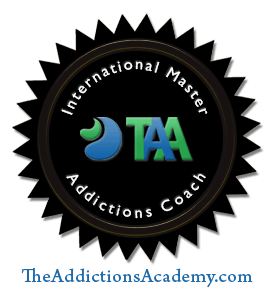Insights on Addiction and Recovery

The Double-Edged Sword: How the Internet's Convenience Fuels Addiction The internet has undeniably revolutionized our lives, boosting efficiency and productivity in countless ways. We connect with people across continents instantly, find answers to questions with a few taps, and even run entire businesses from the comfort of our homes. Shopping is now performed through a few clicks, and entertainment streams directly to our screens. Yet, this powerful tool has a darker side, particularly in its role in fostering and sustaining various addictions. The digital age has, unfortunately, made it remarkably easy for behavioral addictions to take root and flourish. Issues like sex addiction, pornography use, compulsive shopping, and gambling have seen a significant surge in prevalence since the advent of the internet. During the pre-Internet era, engaging in these behaviors often involved a series of hurdles, each acting as a potential deterrent. Consider the process of accessing pornography: Leaving the house. Getting in the car. Driving to the local video store. Discreetly entering the adult section. Searching for a video, hoping to avoid awkward encounters. The uncomfortable walk to the checkout counter, minimizing eye contact. Driving back home. Returning the video to the store. Visiting an adult video store added the anxiety of being seen by someone you knew. Similarly, compulsive gambling and shopping involved significant time, effort, and the potential for social shame, all of which served as barriers to the development of addictive habits. The internet has effectively dismantled these barriers. Now, entering a digital realm of addiction is as simple as turning on a device and clicking a few times. The physical obstacles are gone, replaced by an environment where one can indulge anonymously, secretly, and often without the immediate weight of guilt or embarrassment that existed before. This removal of pre-Internet hurdles eliminates crucial moments of introspection that can halt the progression of addictive behavior. The physical, emotional, and cognitive speed bumps that once existed have been flattened by the internet's inherent anonymity and secrecy. While the internet provides easier access for those already struggling with addiction, its impact extends further. The unfettered access to addictive content online allows individuals, especially children and teenagers, to encounter this content and potentially develop addictions at a much younger age than in the past. For instance, the average age of first pornography exposure in the US is currently around twelve years old. Online activities are also easy to conceal. Children can hide their online behavior well into adulthood, at which point the consequences of these hidden addictions often become devastatingly apparent. Furthermore, the internet acts as an accelerant, intensifying and entrenching addictions at an alarming rate. Individuals struggling with pornography addiction may find themselves drawn to increasingly extreme content and expanding their online behavior to chat rooms or live shows. Those battling gambling or shopping addictions can now easily deplete their savings from their couch, night after night. The internet also presents a slippery slope towards legal trouble. Access to illegal material, illicit online conversations, and age-restricted activities is readily available. The depersonalization that can occur online makes it frighteningly easy to cross dangerous lines in the moment, leading to severe repercussions. Engaging in these behaviors while staring at a screen feels detached from real-world consequences, making rationalization easier. Lax age verification processes are easily bypassed, allowing underage individuals access to inappropriate online activities. Ultimately, each individual bears responsibility for their online actions. Engaging in illegal, immoral behaviors online or gambling or shopping away the family's life savings, requires personal accountability. Because of the dangerous relationship created when an addicted mind encounters the frictionless accessibility of the internet, developing a healthy relationship with our internet-connected devices and being mindful of our online habits is necessary for safe usage. Some strategies for fostering this healthy relationship include: Treating phones and computers as tools for specific tasks, rather than devices used for aimless internet exploration. Educating children about safe online practices and the potential dangers these devices pose. Utilizing devices with limited capabilities and blocking access to specific websites and apps. Employing accountability and monitoring software on children's devices. Removing social media apps and even deleting social media accounts. While these measures can help reduce the risk of developing or perpetuating addiction, they are not foolproof. The ease with which online addictions can be concealed allows individuals to live secret lives until those lives inevitably unravel with painful consequences. If you find yourself grappling with an addiction that manifests online, seeking help is a crucial step towards preventing further damage to your life. Kenneth Markowitz MD, IMAC, CHCQM

